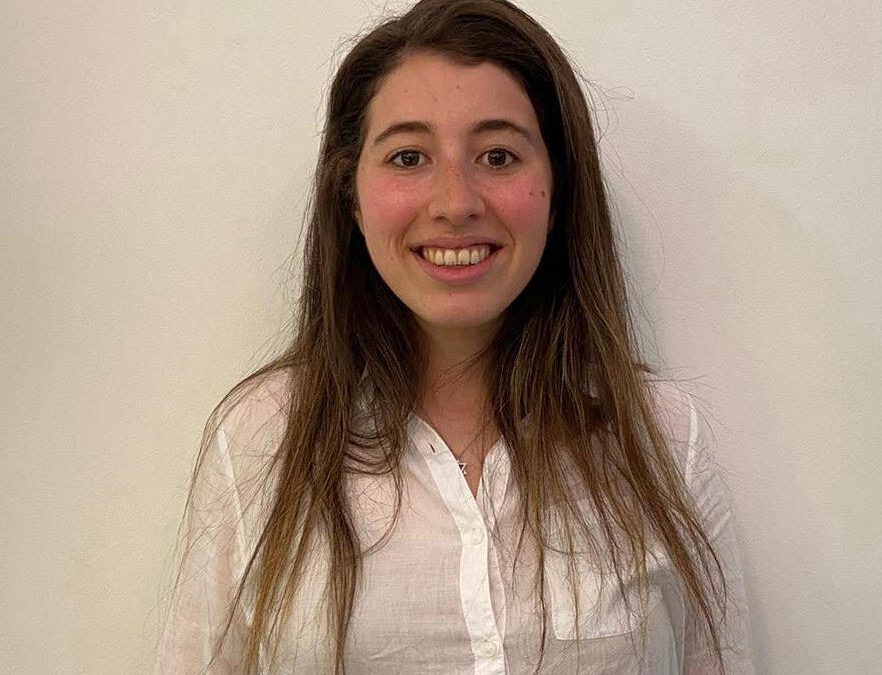Introduction
On 17th June, Amanda Sefton from the Union of Jewish Students (UJS), spoke to a group of our members. The UJS is the representative body on campuses for 8,500 Jewish students in both the UK and Ireland. They support Jewish students in every aspect of their lives, for instance in providing kosher food and making sure that Jewish students feel welcomed on campus.
Tackling antisemitism on campus
Antisemitism is a form of hatred that historically has come from all aspects of the political spectrum. In the past, it has typically come from far-right organisations, but has also arisen in toxic debates around Israel/Palestine which can descend into antisemitism, as well in casual antisemitic conspiracy theories and on the political left.
There is a difficulty as Jewish students might be the only Jewish person in their lecture and because of this, if they make a complaint, it is almost impossible to keep it anonymous. Such students are therefore worried about being targeted.
From around early May until mid-June, when Amanda gave her talk, there was a huge rise in antisemitic incidents with Jewish students being targeted. These included presidents of Jewish Societies receiving death threats. In some cases, in response to clearly antisemitic imagery or slogans, the problem was only dealt with once a Jewish student raised it.
As a result of such incidents of antisemitism, Jewish students are left feeling isolated. Student Unions and universities have not taken the necessary steps to empower Jewish students and show the Jewish students that they can be trusted to support them through antisemitic instances.
Education is key and EDI training should include antisemitism awareness with an explanation about modern day antisemitism. Even if institutions do not think that they have any Jewish students on campus, they should think about prospective students. For instance at open days, they could make it clear that they could supply kosher food on campus. Such steps would provide accessibility for Jewish students.
Where there is a high Jewish student population, this tends to be where the highest number of antisemitic incidents occur. The Community Security Trust wrote a report on campus antisemitism from 2018-20 and they have five recommendations about what can be done in response to antisemitism:
- Adopt an appropriate definition – one that a majority of Jewish students and British Jews believe in. The IHRA definition is supported by the UJS and a lot of Jewish students. This, according to Amanda, is a great way to show Jewish students that as an institution, you are serious about tackling antisemitism. Many Jewish students believe that if their university/college adopts this definition, then their institution cares about them. From their perspective, if they submit a complaint, this complaint is being judged by a definition that they believe in. The IHRA definition should act as guidance in complaints procedures to support the person looking at complaints. This helps them to ascertain whether or not something is antisemitic. The definition is not legally binding and should not be used to stop debates or conversations. However, the definition helps Jewish students to feel comfortable to come forward and speak up about antisemitism and helps to build back trust between Jewish students and their university/college.
- Third party reporting– allowing expert organisations, such as UJS or CST to report on behalf of the victim. This will ensure that the Jewish students feel supported and ensures some anonymity.
- Timing of complaints– these can take too long to resolve, but must still be carried out thoroughly. An institution should communicate with their student about how long a process should be taking.
- Burden of proof– passing comments. Such incidents are difficult to prove and therefore to complain about, as an alleged victim must ask for the other students’ photo ID number. In many cases, a student is unable to provide that evidence as they are in a state of shock. It is unfair to ask the victim of a hate crime for this as they are under a severe emotional toll. To take take this burden off the student, they must be supported and not have to provide every single piece of evidence in the complaint
- Ensuring Impartiality – some cases are about lecturers or academics. People looking at complaints could be friends with the accused academic. If this were the case, the complaint would not be dealt with in an objective light. There should be a wide variety of individuals looking at the complaint and the system must be fair and objective and should support the victim.
Key takeaways:
- Even if you do not have Jewish students, you potentially will in the future. You should endeavour to create a welcoming environment, for instance by ensuring that there are alternatives to events or lectures that take place on a Jewish festival or the Sabbath. One step would be to record lectures or to provide alternative times for Jewish students to attend a lecture or seminar.
- Education around antisemitism – institutions should build antisemitism training into their EDI training.
- Complaints procedures- are they fit for purpose and do they support Jewish students when they complain about a hate crime or indeed any student when complaining about harassment? Are they fit to support the victim?
If you would like to know any more about any of the issues discussed in this blog, Amanda is happy to be contacted at amandase@ujs.org.uk. The UJS are happy to facilitate educational events.

